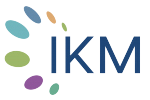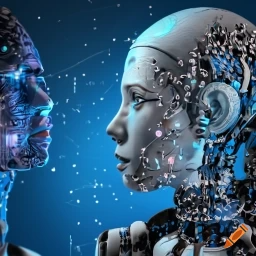A new era of innovation in the field of research has been sparked by the rise of artificial intelligence (AI). AI is revolutionizing the way we conduct research, enhancing decision-making processes and enhancing data analysis accuracy and efficiency. But just like any new technology, AI has advantages and disadvantages that should be carefully weighed.
AI’s advantages for Design Thinkers who research into innovation include:
1. Enhanced Efficiency:
One of the biggest advantages of AI in research is the improved efficiency it offers. Large amounts of data can be quickly analyzed by AI-powered tools, which can also spot patterns and make inferences that could take human researchers days, weeks, or even months to make. While this can help in the brainstorming process, it needs to be verified by the human researcher. Thus, the overall process can be reduced using AI, still the researcher must spend about the same time and effort for editing.
2. Better Accuracy:
AI models can be trained to identify intricate patterns and correlations that human researchers may miss. Results are improved in accuracy and dependability as a result. Again this needs to be verified by the human researcher.
3. Enhanced Creativity:
AI has the capacity to come up with fresh concepts and perceptions that human researchers might not have thought of. This cannot simply be used as is but may trigger wild new ideas and enrich the diverging process. Researchers and designers will need to evaluate, prioritize, and converge those ideas. In the end this can result in new innovations and breakthroughs that might not have been possible without the use of AI.
4. Cost Savings:
By automating labor-intensive tasks, AI can save researchers a significant amount of time and money, in the process that was used to be called secondary research. See what information is already available as a basis to decide what needs to be proofed and what needs to be researched primarily. In the end, AI allows the researcher more time to concentrate on more crucial tasks.
With all the hype and excitement about AI there are still risks to be considered, but they can be minimized by an experienced human research consultant:
1. Absence of Human Judgment:
AI models are only as good as the data they are trained on. If the data is lacking, inaccurate, or skewed, this may result in biased findings. When using AI, consultants should exercise caution and make sure to still interpret and edit the findings using human judgment.
2. Security Risks:
There is a chance that private data will be compromised as AI is used in research more and more. To safeguard their data and prevent unauthorized access, researchers must make sure that the necessary security measures are in place. Though this should be a given for all researcher and will become even more crucial.
3. Ethics:
As AI advances, there are ethical questions about how it will affect society. AI algorithms are only as good as the data they are trained on, and if the data contains bias, the insights generated by the AI will also be biased. This can result in unfair and inaccurate conclusions that can have negative consequences for individuals or groups.
To address this, it is important for market researchers to carefully select the data used in their AI models and ensure that it is diverse and representative of the target population. The researcher needs to pay close attention to any ethical conflicts that may be triggered.
4. Over-Reliance on AI:
Researchers could rely too heavily on AI and neglect their unique capabilities for analytical processes. Human critical thinking paired with experience and knowledge should be the basis of all analysis. Making sure AI is utilized as a tool to assist researchers rather than as a substitute for human discretion is crucial.
In conclusion, AI has significant advantages for innovation research, but it’s critical to balance those advantages with any associated risks. When using AI, consultants must exercise caution and make sure that human judgment is still applied to the results’ interpretation. Researchers can make new discoveries that might not have been possible without AI by using the technology responsibly and ethically.
This article has been written with the help of AI!
While AI was a big help in the research process and structuring, human experience and knowledge validate and add to the content and take it to the next level.

